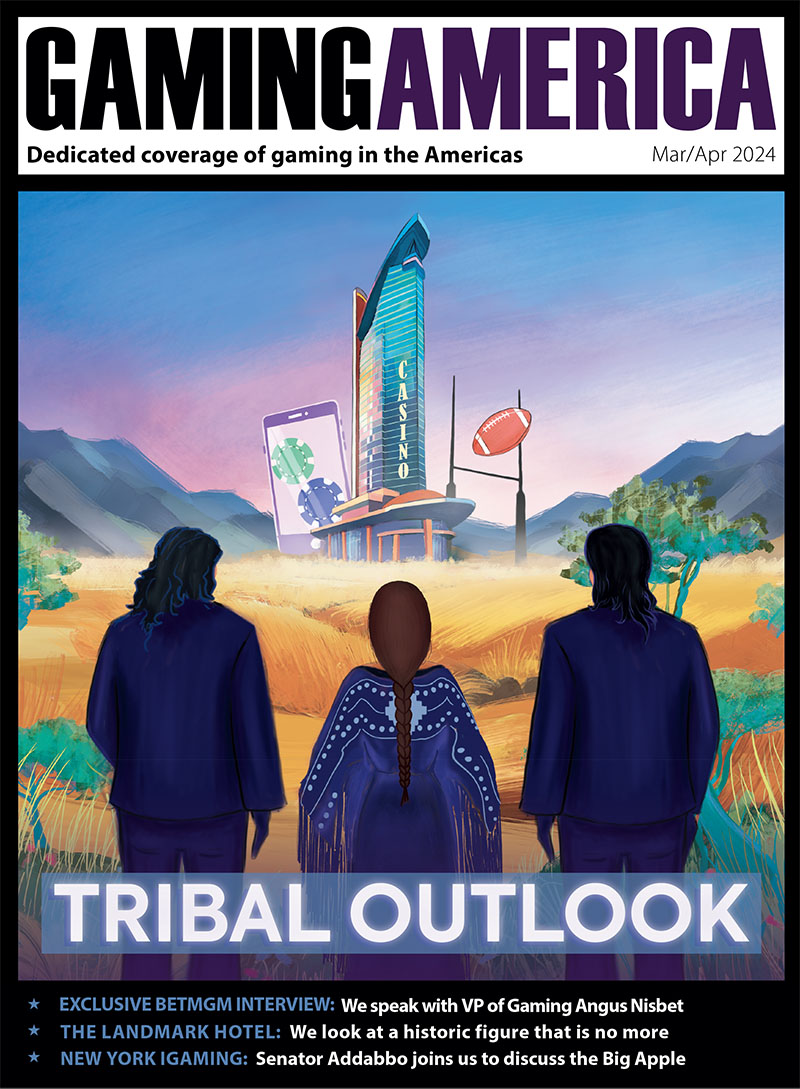
Let’s start by clearing up some misconceptions. In today’s age, what does human trafficking in America look like?
Human trafficking is a crime that involves people having their liberties taken away in order to be exploited. It generally focuses on both labor trafficking and sex trafficking. This is something that is getting more attention. Every year there’s more attention paid to it, and it is a crime that happens across the US and across the world.
What are some signs Hard Rock and Seminole staff are trained to notice that may indicate someone is in danger?
It is a crime that affects the hotel and casino industry and so we train all our team members to look for red flags that could indicate human trafficking. Some of those signs will include observing people who are checking into hotels, to look at the interaction between someone who may be signing in and other people with them. So, if there’s, say, an older man with one, two or three younger women, looking for suspicious signs in how they’re interacting and the way that they’re presenting themselves. Watching for lots of activity going to a particular hotel room, people coming and going.
That’s something we train team members to look for. For our housekeeping staff, we train them to look for certain signs inside hotel rooms like lots of condom wrappers or signs of videotaping that seem strange. Or, if a hotel room constantly has the signal that they don’t want any housekeeping so that no one’s going into the room.
On the casino gaming floor, we’ll train people to look for activity where there may be a handler and a victim, and they’re interacting in an unusual fashion that looks very social. Maybe one is constantly circling the gaming floor looking for people who are winning, people who maybe have been drinking a bit and asking them, 'do you wanna party?' Certain lines. The signs are particular for the gaming floor and hotel space, but it’s important for team members to be looking out for this.
Is the gambling industry in America one that is particularly targeted by traffickers?
Well, we know that it goes on, right? There are opportunities for traffickers when people who are gaming, or particularly when there are large events, like a large sporting event or large concert. If that’s happening on location, there’s an increased chance that there will be more people who are trafficking. One of the first things we need to do is acknowledge that this reality is going on and then answer the question, what do we need to do about it?
You launched a set of new anti-human trafficking initiatives in early January. Can you tell me more about these and how these tools are designed not just for your staff, but for the wider community?
One of the things we have been completing globally is a QR code that we place at our properties front of house. This QR code was created by survivors of trafficking for victims of trafficking. The QR code, which we locate in places like bathrooms, elevator wells and parking garages, will allow someone who’s being trafficked, if they scan it with their phone, to get information on what trafficking is. Because, in fact, a lot of people who are trafficked don’t think of themselves as being trafficked. The first information someone will see when they scan it is, are you being forced to sell sex against your will? Have your identity documents been taken away from you?
It prompts someone to think about what their situation is, then they’re able to find out more information on trafficking. They can also, if they’re in crisis, immediately call a phone number and local law enforcement will be there. The backend has been designed to provide information for local authorities. The other thing someone can do is file a report online to give information about where they are in a situation.
Since rolling this out, we’ve had a number of cases where law enforcement in the US, the Department of Homeland Security, have begun investigations to find out where someone was and try to rescue them. This is something we can do as an industry. It’s better than putting up a poster that has a 1-800 number to phone. It’s something that’s direct and is designed for a potential victim.
We’ve noticed a lot more products with practical applications. A practical solution seems efficient.
Exactly. The QR code is very well designed. The organization is called Twentyfour-Seven and it’s designed with victims centered; they understand their needs. Other things we are doing? We collaborated recently with the American Gaming Association (AGA). The AGA has a task force on human trafficking, I’m a member of that task force and I work with my colleagues across the industry. We created an online training program for casino employees. This has all the details you would need as a casino employee to look for signs of human trafficking. This training had input from victims and was vetted by victims to make sure that it’s, again, victim-centric. Training is free for anyone in the casino industry, online or land-based. We’re hoping to create an industry standard.
Could you tell me more about our youth education programs and what you learned from your pilot program last year?
It was created in collaboration with an anti-human trafficking organization called PACT, which stands for preventing all children from being trafficked. They are part of an international affiliate network called ECPAT and there are ECPAT locations across the world. This organization does a few things. One of the things they do is educate on awareness and prevention of trafficking among children. The online program we created is intended to reduce the risk that young people, high school students in particular, will be lured online. Increasingly, traffickers are going online to try to lure vulnerable young people who are perhaps lonely. They use social media, and they use social gaming; not gambling but console gaming, games that kids play, to befriend somebody and draw them into trafficking.
This program is intended to be taught in classrooms and intended to be a conversation that’s led and facilitated by a teacher but draws kids into talking about what they do on social media. It’s not something that is lecturing kids or telling them right from wrong. It’s about starting a conversation and drawing on their own activities, their own behavior, and getting them to talk about it. We launched this in the US in 2023 and we’ve had over 1.2 million US students in 60,000 classrooms across 47 states complete this program. This is spending between half an hour to an hour and a half in a classroom, depending on how the teacher wants to approach it. There’s a quiz that assesses online safety literacy and we saw very positive results in terms of proof that there was actual learning going on. So, we’ve adapted this program for Mexico. There are five Hard Rock properties in Mexico.
We’ve adapted and, when I say adapted, it’s not just translating the language. We worked with ECPAT Mexico and changed the content to make it relevant for the population in Mexico. We’ve had success in one state in Mexico called Quintana Roo and the Governor there has adopted it as part of the education curriculum in his state. We’re looking to expand that in other parts of Mexico. We are also working this year to adapt that program for other Central and South American countries. This is something we can do on the prevention side.
How do you ensure your staff remember and remain vigilant when it comes to anti-human trafficking training?
It’s a very important question. We have different reinforcement training we make available. There’s an online reinforcement training that we have, and it is required on an annual basis; it’s a half-hour summary training that we require people to take. It focuses on some key red flag signs. It also talks about large events, as I mentioned earlier, like sporting events and entertainment events, and being on the lookout when those things are happening. We also take the opportunity, like during January’s National Human Trafficking Prevention Month, to drive a lot of internal communications talking about what we’re doing, reminding people of its importance for our industry.
Also, over the last year in different parts of the world, we’ve used our Social Identity Quest education program as a reinforcement with our team members, where we invited team members to check out the Social Identity Quest with a young person in their life, their own child, a niece or nephew or family friend. Sit down with a young person, complete the quest and then if they register their name and property where they work, they would be eligible for a draw of prizes. So, we try to take what we’re doing and leverage it but have ongoing communications throughout the year to build upon the training we give people.
If a guest at one of your casinos suspects suspicious activity, what is the best course of action they can take?
A guest should inform security. They can inform any team member they meet; if they are able to see a security officer that is the best person to tell. What happens if a team member or a guest were to approach security and say, 'I saw something?' Then the security officer will investigate the situation. They’ll take down whatever information the guest or team member is able to provide in terms of descriptions of people and where they saw the activity.
Then security will decide on whether to notify law enforcement and bring law enforcement into the situation. This is an important point because we don’t want team members, guests or anyone on the property to actually attempt to intervene in a situation they think might be trafficking, because that could be very dangerous. Really, the only people we want actively doing something to address the situation is security and/or law enforcement. The procedure is: if team members see something they tell security, security notifies law enforcement.

